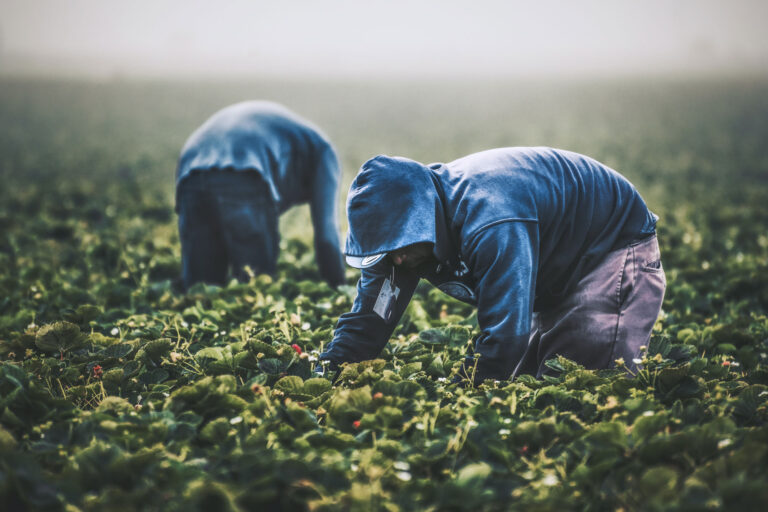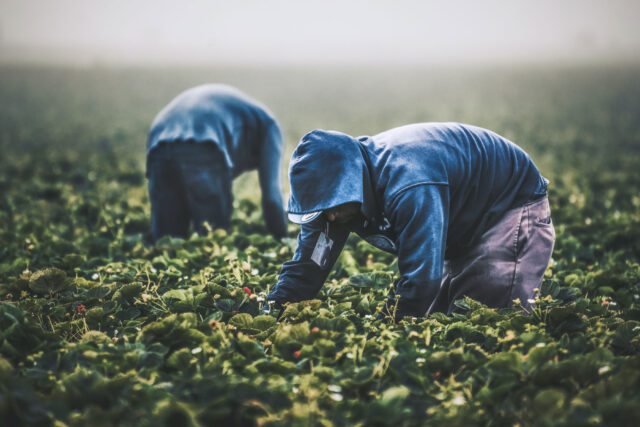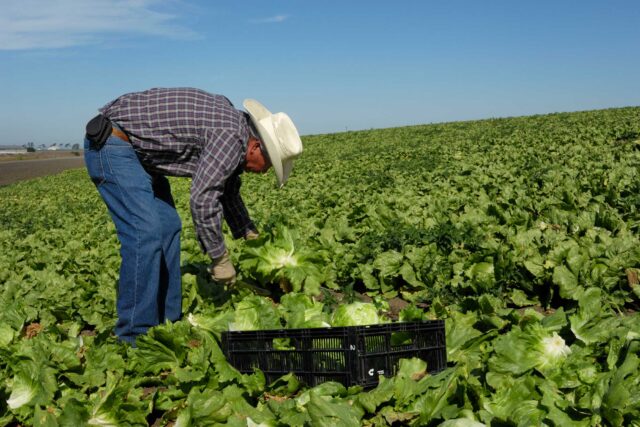Farmworkers, a labor force largely made up of immigrants, are essential workers who were instrumental in meeting California’s food needs during the health crisis of the COVID pandemic. The farmworker population is aging, and cost or lack of insurance is a barrier to health care. Last week, PPIC researcher Paulette Cha presented findings from a report that examines how recent policy changes affected insurance coverage and access to health care for farmworkers, and discussed farmworker health with a panel of experts.
A 2014 expansion to Medi-Cal under the Affordable Care Act (ACA) increased coverage to most low-income adults in California; the policy clearly correlated with a rise in Medi-Cal coverage among farmworkers. The ACA’s employer mandate—rolled out over 2015 and 2016—required large employers to offer affordable insurance to their employers, but Cha’s findings show the mandate did not correlate with coverage gains. Furthermore, neither policy correlated with insurance gains for the 40% of farmworkers who are undocumented.
The pandemic further exacerbated existing issues with access to health care. Estella Cisneros of California Rural Legal Assistance, Inc. highlighted how COVID exposed farmworkers’ challenges with getting health care, including physical isolation and language barriers, even as this group faced higher rates of COVID infection than others.
“We either die of hunger or we die of COVID.” This comment, from a Tulare County resident, resonated with Joaquin Arambula, California State assemblymember. Highlighted in a survey by the UC Merced Labor Center, the comment underscored factors that must be addressed beyond health care. “Support must be more than one-dimensional,” Arambula said, especially for the undocumented community; support needs to address housing, food, and access to clean water along with access to health care.
Many agriculture workers have been with employers for generations, and this strong relationship led farmworkers to look to employers as a support system when COVID hit. Theresa Kiehn of AgSafe noted that growers took the lead in collaborating with local health departments. AgSafe had conversations about getting vaccinations out to the fields. Kiehn added that COVID testing has been critical and testing resources need to remain available.
“Federal funding has made it possible to offer testing and treatment at no cost to low-income Californians,” Cha said, noting the role of government investment and looking to changes on the ground that could improve health and safety for farmworkers going forward.
“I look forward to conversations on how we improve air quality,” Arambula said, “and looking at extreme heat and the effect it has on our community.”
Cisneros encouraged Californians to support and work with community-based organizations. “CBOs are on the ground with farmworkers and families in ways other organizations may not be able to do.” These organizations have had great success with disseminating information, but each CBO has different needs. “Get to know who they are in your community, how they want to be supported.”




